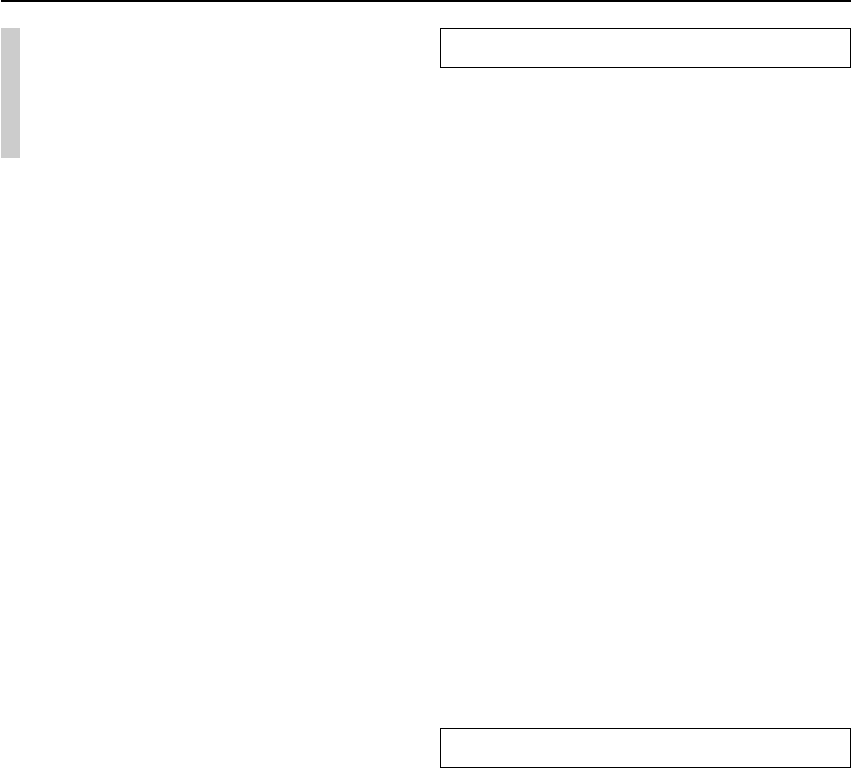
7
Installation
Preventing excessive rise in the internal temperature
of the RDA-7.1 is vital to the long operational life of
the equipment. This will also help prevent trouble at
the RDA-7.1 from damaging other connected
components. Therefore, it is important to choose a
location with excellent ventilation for installation.
Ventilation
During normal household use of the RDA-7.1, only its
internal heatsink becomes warm. However, if used with
low impedance speakers at high volume levels, the
internal temperature level will rise higher than usual.
These high internal temperatures may cause damage to
the internal components.
To prevent damage from occurring due to high internal
temperatures, it is vital to have proper ventilation and
passage of air to carry out the heat and keep the internal
temperature within acceptable ranges.
Caution
• Do not place the RDA-7.1 inside cabinets or closets
where there is poor passage of air and ventilation.
• Do not place the RDA-7.1 near external heat sources
such as heaters or hot air ducts.
• Do not place other components or object on top of the
RDA-7.1.
• The cover of the RDA-7.1 contains ventilation holes
to allow the passage of air. Do not cover or block
these holes in any way.
If you are planning to place it within a cabinet, either open
holes in the rear panel of the cabinet to improve
ventilation or use a fan to force air circulation.
As a general rule, if during idling the cover is too hot to
touch, then ventilation needs to be improved.
Installation location and space
The RDA-7.1 is an extremely heavy piece of equipment.
Make sure that the floor or cabinet or rack where it will be
located is strong enough to support its weight.
You will also need to leave enough space behind the
RDA-7.1 to allow room for the power cord and other
cables for connecting system components. A minimum of
three inches (8 cm) is required behind the RDA-7.1 to
allow room for the cables and cords without excessively
bending them.
